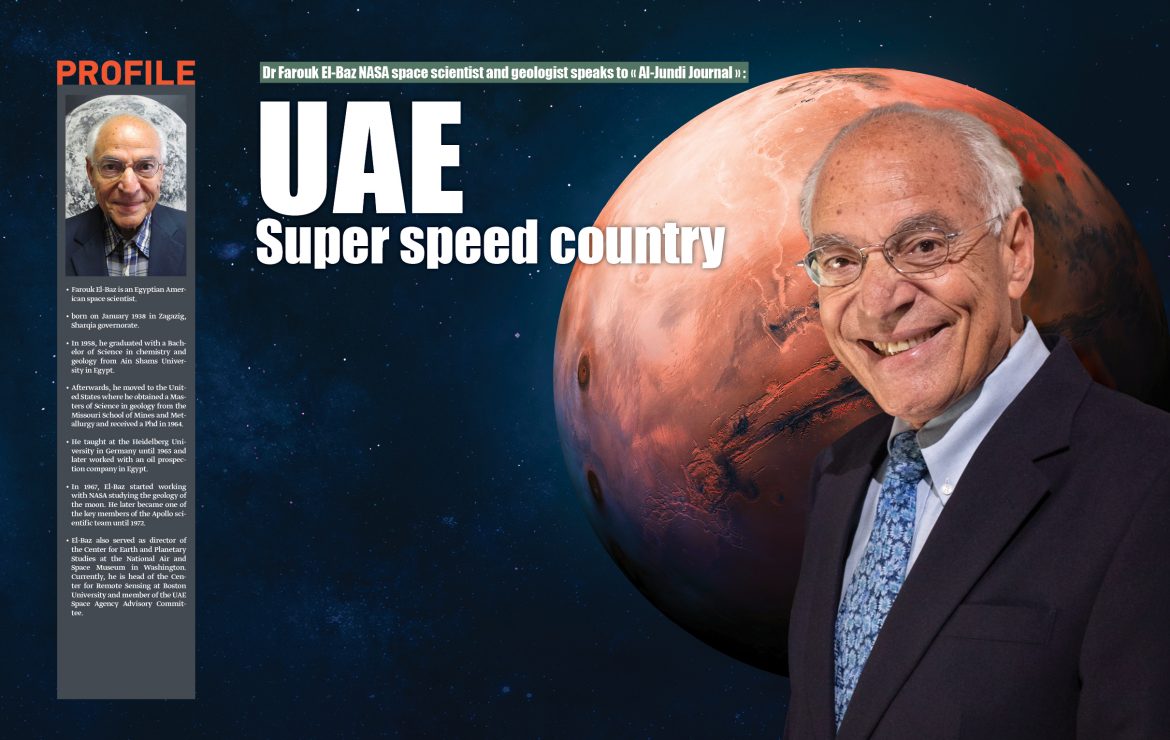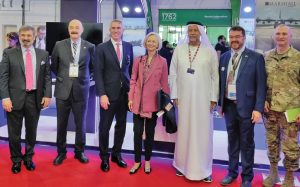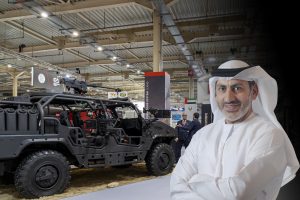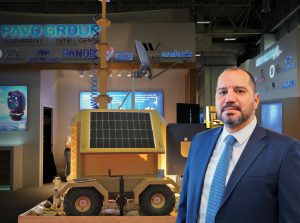In an interview with “Al-Jundi Journal”, Dr Farouk El-Baz, a space scientist and geologist working with NASA, explained how the international science community looks with great interest at the success of the UAE’s space mission “Hope Probe”, because it will offer precious and updated knowledge about the atmospheric layers of Mars that shall be presented to the scientific community for the first time ever. He pointed out that the to state-of-the-art scientific equipment of the UAE mission will operate around the clock to provide a comprehensive view of weather cycles of Mars. The mission was achieved thanks, to the steady support of the UAE leadership spurred by Late Sheikh Zayed, who met Apollo astronauts in the 1970s, El-Baz recalled, noting that Arab countries, with the UAE in the forefront, have made strides in developing Earth imaging satellites. Investment in military satellites is very possible given that sensory satellite technology used for civilian purposes was first developed in the military field.
On the Arab experience in making satellites for military purposes, El-Baz considers that major leaps have been made in terms of manufacturing and sending Earth observation satellites into orbit, citing as an example “DubaiSat 1” and “DubaiSat 2”, built by the Mohammed Bin Rashid Space Centre, and KhalifaSat, which was 100% developed by Emirati youth to provide high-resolution imagery of the Earth for civilian and some military uses.
In this respect, investment in this vital field is very possible, he said, pointing out to the Apollo mission, which succeeded in landing the first human being on the moon, after all, several institutions NASA dealt with were asked to provide assistance, such as summaries of the mission results that can be understood by non-experts. NASA published these summaries annually in order to spread knowledge, he added, because NASA is funded by the tax-payer’s money.
Same Technology
Concerning differences in sensory technology between military and civilian satellites, El-Baz explained that all civilian sensory satellites owe their existence to the military sphere where they were first tried and not the other way round. Several civilian institutions cooperate with military counterparts to develop imaging systems, which have been improved by high-resolution technology, he said.
Scientific competition is important in this field with the launch of several space programmes by Arab countries, a factor that would bolster sciences and research, he said. These projects require skilled and highly educated researchers, engineers and administration, he added, noting that countries across the globe are rushing to prove their capabilities in scientific and technological areas. Therefore, it is good that Arab countries pool their efforts in an Arab Space Agency in order to support experts of the current generation to carry out an Arab project that shall restore confidence in the Arab World’s minds and capabilities.
Forward-looking Vision
The NASA space scientist shed light on the far-sightedness of Late Sheikh Zayed Bin Sultan Al Nahyan who spearheaded the development and laid the foundations of the UAE’s space capabilities. The Late Sheikh spared no effort, as evidenced by his insightful quotes and achievements on the ground, to open up schools and universities to the youth and institutions to build the foundations of a knowledge society. The Late Sheikh Zayed received El-Baz in 1974, 1975 and 1976. The first meeting took place as part of a visit to deliver a conference on “the scientific outcomes of Apollo mission to the moon.” Back then, the Late Sheikh asked him whether he will deliver a lecture at a high school for girls. El-Baz answered positively the Sheikh’s request which, he said, reflects the concern of Late Sheikh Zayed to benefit his countrymen and women on an equal footing from scientific advancements. This, El-Baz said, made him feel that he was in front of an exceptional leader in its vision and thought and sense his endeavour to make quality education accessible for students of the UAE.
In his second meeting with the Late Sheikh with the attendance of James Irwin who set foot on the moon in Apollo 15 mission. He said the Late Sheikh made sure to learn about the details of the spaceflight and the lives of the astronauts in space. On the same occasion, El-Baz offered Late Sheikh Zayed a photo taken from the moon in which Earth appears like a crescent. Sheikh Zayed commented on the Photo saying, “the photo shows the perspective towards Earth from any planet.”
As for the third meeting, attended by three astronauts of the Apollo-Soyuz carried out jointly by the US and the USSR, El-Baz recalls that the Late Sheikh was happy when they offered him a model of a space shuttle that NASA was designing for its future spaceflights.
The Hope Probe
The successful launch into orbit of the “Hope Probe” on July 20 and its expected arrival in Mars next February will reveal information for the first time about the Red Planet, El-Baz said. The scientific goals of the mission will complete the already knowledge on Mars made available by previous missions that studied Mars atmosphere from the surface, he added.
He shed light on the “Hope Prone” as the first Arab project to explore other planets, which he described as “a source of hope in the Arab region”. The project is also a valuable UAE contribution in shaping a better future for humanity and a national undertaking reflecting the vision of the leadership of the country to build a national Emirati space programme in line with the UAE’s commitment to international cooperation, El-Baz said. Equally important, the “Hope Probe” mission to explore Mars will provide answers to key scientific questions about the Red Planet that no other mission could examine. The UAE’s mission is carried out in close cooperation with the international scientific community focusing on Mars, he said, explaining, in this connection, that Probe 3 was equipped with scientific equipment designed by young Emirati engineers to investigate the changes in Mars atmospheric layers by providing “the first comprehensive view of climate change and daily weather patterns,” in addition to “unveiling the interaction between higher and lower atmospheric layers of Mars.”
Abundant Information
He explained that the mission will collect the largest information possible about climate in Mars in order to share it with the international scientific community. The satellite has a multi-band digital camera capable of taking high-resolution coloured images of the Red Planet and measuring the properties of ice and the lower ozone layer in Mars’ atmosphere, in addition to an infrared spectrometer to examine the temperature profile and ice and water vapor in the atmosphere, in addition to ultraviolet spectrometer that will study traces of oxygen and hydrogen in the upper atmosphere.
El-Baz also mentioned that the scientific community’s knowledge about Mars shows that its surface has seas that largely resemble the Earth’s oceans and that the surface of the Red Planet is quite similar to the geography of many Arab deserts, adding that the area covered by sand in Mars’ northern pole is so vast, a fact he considers requires more attention from Arab scientists.
Great achievement
The impressive success of Emirati engineers in building Hope orbiter shows that the Arab World has enormous skills that are waiting for chance to shine and prove its efficiency, El-Baz said, reaffirming that this watershed mission made us restore faith in our capabilities and skills. The success of this mission, will serve as a factor and significant indicator that the Arab World can relive in the coming years the glories of its ancestors who excelled in astrology, mathematics and other sciences that enlightened humanity in the past. Now is the time to walk on their footsteps and restore such glories, he said.
The UAE’s mission to explore Mars sends a strong message to the youth in the Arab World, according to which training skilled human resources and unlocking young people’s potential will give birth to a new generation that is able to materialise the ambitions of Arab peoples to achievements that they deserve, El-Baz said. This is only possible through quality education in tandem with scientific progress based on cooperation with advanced countries, experience-sharing and supporting our scientific and research institutions for the best interests of the Arab societies, he added.
According to him, special attention should equally be paid to encouraging research in new fields of study in order to respond to the pressing issues facing the whole world, such as food and water security and climate change in addition to other fields that require different qualitative solutions using new technologies.
El-Baz underscore the significant support lent by the UAE’s government and institutions to achieve space projects, citing the UAE Space Agency and the Mohammed Bin Rashid Space Center, which helped the country make several milestones in recent years with the launch of multiple multi-purpose satellites, the successful mission “Zayed Ambition”, and the international spaceflight of the UAE’s Hazza Al Mansouri, the first Arab astronaut as well as the mission to Mars and other future projects that Emiratis are currently developing. These achievements stand as an inflection points in the history of the UAE and a distinctive feature that places it among the World’s most influential countries, El-Baz said.
Wise leadership
His Highness Sheikh Mohammed Bin Rashid Al Maktoum, UAE Vice President, Prime Minister and Ruler of Dubai and His Highness Sheikh Mohmmed Bin Zayed Al Nahyan Crown Prince of Abu Dhabi and Deputy Supreme Commander of the UAE Armed Forces both have a forward-looking vision of nation-wide projects including space which has received foremost attention and support from both leaders, said El-Baz, adding that the Mohammed Bin Rashid Space Center remarkably helped train a new generation of skilled youth and managed to achieve and present flagship projects with an international importance, such as satellites that are now made by Emirati hands. This shows the particular attention attached by the UAE’s wise leadership to youth education in the UAE in order to equip them with skills and expertise through knowledge transfer programmes and cooperation with advanced countries in all fields, he said. Such is the path of knowledge to retrieve Arab glories on which the UAE is forging ahead, El-Baz added.
Interviewed by: Razi ELhadmi – Photography by: Adnan Ali Al Jaberi













